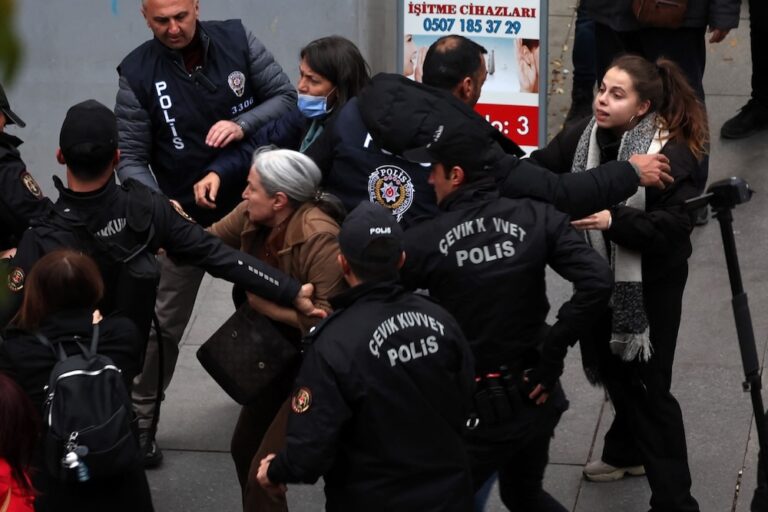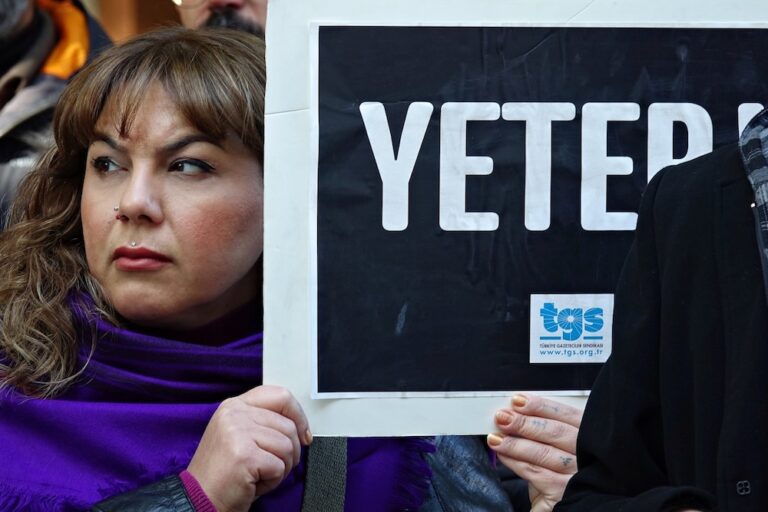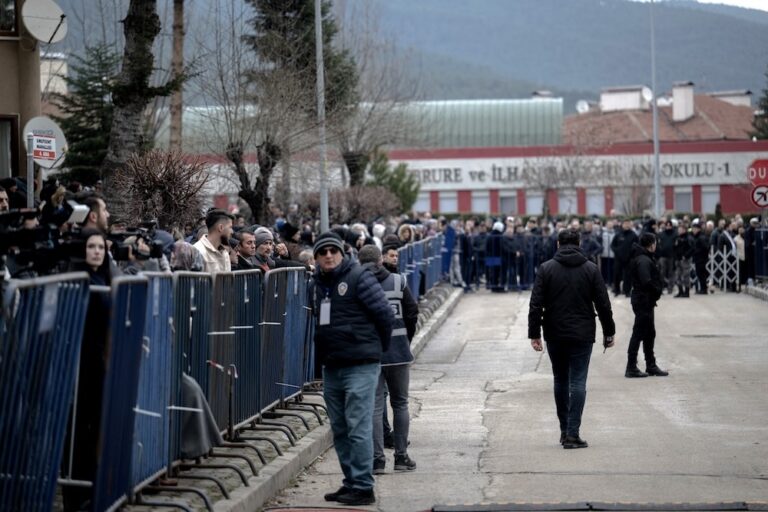(RSF/IFEX) – A letter from Tuncay Uzundal, a member of the alleged terrorist group on trial for journalist Hrant Dink’s murder, to the prosecutor in charge of the case has revived questions about the role of the police in Dink’s death. The contents of the letter were revealed last weekend by several Turkish news media […]
(RSF/IFEX) – A letter from Tuncay Uzundal, a member of the alleged terrorist group on trial for journalist Hrant Dink’s murder, to the prosecutor in charge of the case has revived questions about the role of the police in Dink’s death. The contents of the letter were revealed last weekend by several Turkish news media including the daily “Radikal” in its 7 July 2007 issue.
“Once again, the finger has been pointed at the security forces because of their passivity prior to Dink’s murder and because of what they could and should have done to prevent it,” Reporters Without Borders said.
“The behaviour of the main defendants and their attempts to blame each other for Dink’s death should not deflect attention from the urgency to pursue the investigation to the end and to question those police officers whose role has been called into question,” the press freedom organisation added. “This is the only way for the Turkish judicial system to maintain its credibility.”
In his letter, which the prosecutors received just before the start of the trial, Uzundal reportedly wrote that police officers told him, “It is the state that will break Dink’s pencil.” He did not, however, explain when and in what circumstances he was told this.
Uzundal also claimed in the letter that he told Yasin Hayal, one of the alleged masterminds of Dink’s murder, that his co-tenant, Erhan Tuncel (another of the defendants), was a police informer. According to Uzundal, Tuncel was recruited by Ramazan Akyürek, who was the police chief of Trabzon (their home town) and who is now head of intelligence in the National Security Directorate.
In the letter, he describes how Tuncel warned the Trabzon police of the plan to murder Dink. He allegedly told the police: “Yasin Hayal will not serve his four-year prison sentence and Dink is going to be killed.”
Arrested on 1 February, Uzundal is being prosecuted under article 314-2 (membership of an armed organisation) and article 82-1a (premeditated murder) of the Turkish criminal code and faces the possibility of life imprisonment. He told investigators he was present at preparatory meetings between Hayal, Tuncel (also an alleged organiser) and Ogün Samast (who is alleged to be the person who gunned Dink down on 19 January).
Tuncel, for his part, has accused Uzundal of playing a more important role that he acknowledges in Dink’s death. He claims, for example, that it was Uzundal who supplied Samast with the Turkish flag found in his possession when he was arrested on 20 January.
The Dink family’s lawyers have meanwhile appealed against the release of four other defendants – Salih Hacisalioglu, Osman Alpay, Irfan Özkan and Veysel Toprak – by the Istanbul court of assizes on 2 July. The lawyers say the four must be re-arrested because they are “essential for shedding light on all aspects” of the case.
The next hearing in the trial is not due to take place until 1 October. In the meantime Samast, Uzundal and other defendants have still not appeared before the court and some key witnesses have still not been questioned.


